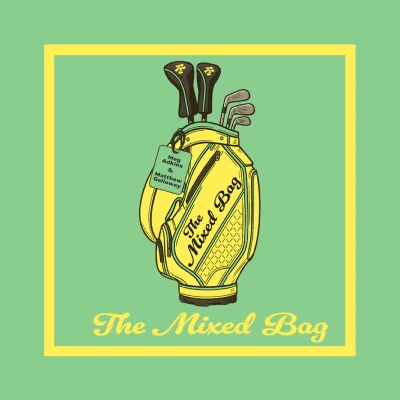articles
Competitive Golf
LaMagna's Weekly Update
Tiering PGA Tour, LIV Golfers Ages 25 and Under
5 min read
July 2, 2025
Competitive Golf
Professional Golf
Alternate Shot: What if LIV Golf Enters the Women's Game?
5 min read
July 2, 2025
Competitive Golf
Professional Golf
Paulie's Picks: 2025 John Deere Classic
3 min read
July 1, 2025
Courses
Design Notebook
Chocolate Drops: The King and Prince Project Is a Sign of the Times
5 min read
June 30, 2025
Competitive Golf
Professional Golf
Potgieter's First PGA Tour Win, Patrick Reed's Ryder Cup Case
7 min read
June 30, 2025
Eggstracurriculars
The Carton
June Virtual Hangout: All Things Northern Ireland
1 hour watch
June 27, 2025
Eggstracurriculars
Architecture
Golf Architecture Mailbag Podcast: Call for Questions
3 min read
June 27, 2025
Eggstracurriculars
The Carton
Weekend Chat: Athletes and the Media
5 min read
June 27, 2025
Courses
The Carton
Feel the Change
10 min read
June 27, 2025
Eggstracurriculars
The Carton
Eye on Golf with the Shotgun Start: Keegan Bradley, Phil Mickelson, and more Ryder Cup cases
3 min read
June 26, 2025
Competitive Golf
LaMagna's Weekly Update
Tiering the Swings on the PGA Tour Schedule
7 min read
June 25, 2025
Competitive Golf
Professional Golf
Paulie's Picks: 2025 Rocket Classic
3 min read
June 24, 2025
Courses
Design Notebook
Design Notebook: A Gem on the Mornington Peninsula Eyes Improvements
10 min read
June 24, 2025
Courses
The Carton
Fried Egg Favorites: Michigan Golf
5 min read
June 23, 2025
Courses
Professional Golf
Feelings on PGA Frisco
5 min read
June 23, 2025
Eggstracurriculars
The Carton
June Fried Egg Golf Club Virtual Hangout
3 min read
June 21, 2025
No results found.
Podcasts
The insights and entertainment you didn't know you needed from the world of golf

The Shotgun Start

The Fried Egg Golf Podcast

Designing Golf

The Mixed Bag

Get a Grip with Shane Bacon

Latest Episodes
Podcast
The Fried Egg Golf Podcast
With

Latest Episodes

Latest Episodes
Podcast
With

Latest Episodes

Latest Episodes
Fried Egg Golf Club
Get full access to exclusive benefits from Fried Egg Golf
- Member-only content
- Community discussions forums
- Member-only experiences and early access to events






.webp)
%20(1).webp)







.webp)







